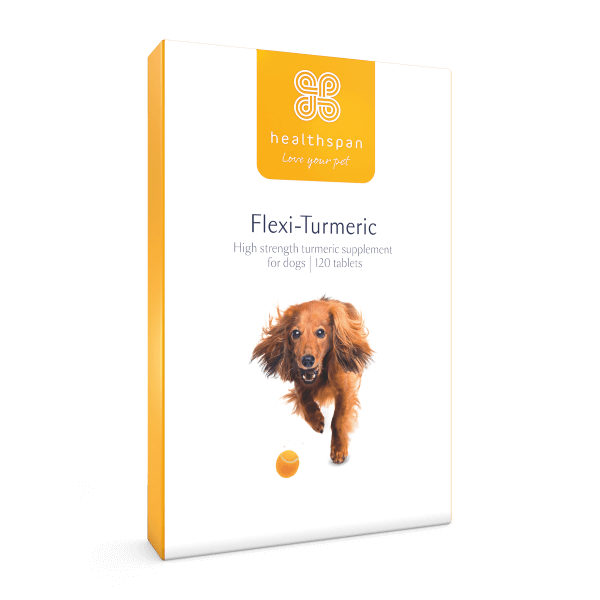For the last thirty years I have spent most of my time treating pets with natural therapies, medicines and supplements. During that time there’s often been a surge of interest in one 'miracle' supplement or another.
Royal jelly would help all ills. Then coconut oil was the panacea. Both these products, by the way, are of great benefit to health and I use them regularly for my patients. But nothing is miraculous and there are always new ideas to look at in the field of natural health.
Of course, many of these 'new' ideas have been around for a long time. Take turmeric for instance. It's been used for centuries, not only as that well known, distinctive yellow, peppery spice used for curries, but also as a health-giving supplement.1
In traditional medicine turmeric is known for its anti-inflammatory properties. Scientific analysis has shown that the active principle of turmeric, curcumin, suppresses the production of chemicals such as TNF-alpha which cause inflammation in the body.2 The suppression of such chemicals helps reduce pain and swelling.
Turmeric and dog joint health
Dogs, like humans, are prone to inflammatory disease. This is very obvious in joint diseases such as arthritis, but many patients with chronic ill health have a constant low-level inflammation which is responsible for many of the degenerative diseases in the body, including joint degeneration.3 Of course, inflammation is not always a bad thing – an acute inflammatory response, to a viral or bacterial infection for instance, will trigger the release of white blood cells which fight infection and start the healing process.
The effects of curcumin on inflammation have been researched and proved to perform positively. A study published in 2014 showed it outperformed Ibuprofen in people with arthritis. Pain levels were reduced more in those taking turmeric compared with the group taking Ibuprofen, and 96% of the curcumin group were satisfied with the treatment.4 Another study in 2004 showed curcumin worked better than aspirin and Ibuprofen and just as well as anti-inflammatory drugs in general.5 There are some similar studies in dogs as well, for instance a report in Research in Veterinary Science in 2016 confirmed the anti-inflammatory of curcumin in dogs with arthrosis.6
Inflammation doesn't only occur in joints. The anti-inflammatory effect of curcumin means that is likely to help with inflammation anywhere in the body, including the digestive tract. Patients with IBD and other gastro intestinal disorders – just as common in dogs as in people – often respond well to turmeric, and Japanese researchers commented in 2009 that 'it's unrivalled safety profile suggests it has bright prospects in the treatment of IBD'.7
Curcumin also helps digestion of food by stimulating bile production and helping break down dietary fats. Dogs, being carnivores, have a digestive tract designed to take in a high protein, high fat diet, so turmeric is a logical supplement to give them for this reason.
Patients with IBD and similar conditions are prone to abdominal pain and discomfort and a 2004 study showed a boost in quality of living reported by patients suffering from these symptoms who took turmeric.8
Returning to animal research, a 2015 study showed positive effects not only on the intestinal system of rats with irritable bowel syndrome, but also on their brain function via action on neurotransmitters, which made them feel less anxious and depressed.9
A herbal medicine containing turmeric was given to dogs with ringworm in a study of 2001, and 21 were cured within two weeks.10
Naturally not all these studies are conclusive, but there is a growing body of scientific evidence to add to the centuries of use in traditional medicine that confirms the effectiveness of turmeric in many inflammatory conditions.
I have been advising and prescribing turmeric for my canine patients for many years in my veterinary practice, and I can confirm from my personal experience that I find it an invaluable tool in my natural medicine kit to help in the treatment of inflammation and to relieve the symptoms of pain and discomfort caused by inflammation.

Flexi-Turmeric For Dogs
400mg high-quality turmeric extract
- Supports your dog's mobility and flexibility
- Added vitamin C for immunity and joints, brewer's yeast for taste
- Easy to crumble over your dog’s food







